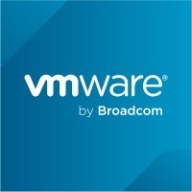

Google Cloud and VMware Tanzu Platform compete in the cloud solutions category, with Google Cloud having the upper hand due to its broader feature set and user-friendly experience. However, for enterprises already invested in VMware, Tanzu Platform's deep integration offers significant value.
Features: Google Cloud offers stability, scalability, and a user-friendly experience. Its ease of use and integration with various tools are key features. VMware Tanzu Platform is recognized for its integration with VMware products, strong Kubernetes support, and comprehensive container management capabilities.
Room for Improvement: Google Cloud requires enhancements in analytics, monitoring, and user onboarding. Better third-party integration and cost management insights are desired. VMware Tanzu needs improved support for non-VMware ecosystems, greater networking flexibility, and a more intuitive interface. Its cost structure also calls for more competitive pricing.
Ease of Deployment and Customer Service: Google Cloud is primarily deployed in public cloud environments, with straightforward deployment but mixed technical support reviews. Users often rely on self-learning due to variable customer service. VMware Tanzu, commonly deployed in hybrid settings, offers a comprehensive cloud-native application approach but has a complex setup. Its structured support is considered costly for smaller enterprises.
Pricing and ROI: Google Cloud is cost-effective, especially with its pay-as-you-go model, although support services can be costly. It offers competitive pricing and ROI benefits when fully utilized. VMware Tanzu is more expensive, often bundled with VMware services, making it less accessible for smaller organizations. Its ROI is maximized when integrated into existing VMware infrastructure, benefiting enterprises in the VMware ecosystem.
| Product | Market Share (%) |
|---|---|
| Google Cloud | 4.5% |
| VMware Tanzu Platform | 3.6% |
| Other | 91.9% |


| Company Size | Count |
|---|---|
| Small Business | 42 |
| Midsize Enterprise | 8 |
| Large Enterprise | 32 |
| Company Size | Count |
|---|---|
| Small Business | 10 |
| Midsize Enterprise | 3 |
| Large Enterprise | 10 |
Google Cloud is an Infrastructure as a Service Cloud (IaaS) and Platform as a Service (PaaS) solution that provides infrastructure tools and services for building applications on top of a public cloud computing platform. As one of the leading global infrastructures, this product allows users to securely manage enterprise data, receive valuable insights, and store documents. Google Cloud provides its various services through tools and services for data warehousing, security key enforcement, application programming interface (API) management, artificial intelligence (AI), and machine learning (ML).
The use cases of Google Cloud can be divided into four main categories:
The solution is utilized by organizations of all sizes and industries, as it is suitable for the following purposes:
Google Cloud Features
Google Cloud offers multiple features for its clients. Some of these include:
Google Cloud Benefits
Google Cloud brings various benefits to its users. Some of these include the following:
Reviews from Real Users
Isuru P., an assistant vice president at a tech services company, likes Google Cloud because it is easy to deploy next-generation applications using it.
An IT solutions consultant at a tech services company rates Google Cloud highly because they find the solution stable with a good user experience and a straightforward setup.
VMware Tanzu Platform is designed for cloud-native development and management of Kubernetes, CI/CD processes, microservices, and containerized workloads. It supports deployments both on cloud and on-premises, providing centralized management via Mission Control.
VMware Tanzu Platform offers seamless integration with vSphere, ESX, and vSAN, supporting centralized cluster management and lifecycle management. The platform provides a GUI for monitoring CI/CD pipelines and network policies, enhancing multi-tenancy and Day 2 operations. Users can easily manage Kubernetes clusters, monitor applications, and integrate with tools such as GitHub, GitLab, Cloud Foundry, and Azure. It ensures compliance and security for service providers, financial institutions, and businesses.
What are the key features of VMware Tanzu Platform?
What benefits and ROI should users look for in VMware Tanzu Platform reviews?
Industries such as financial institutions, service providers, and businesses requiring rigorous compliance and security deploy VMware Tanzu Platform. These entities benefit from centralized management, streamlined DevOps processes, and integrated tools, enhancing their capabilities in cloud-native developments and containerized workloads.
We monitor all PaaS Clouds reviews to prevent fraudulent reviews and keep review quality high. We do not post reviews by company employees or direct competitors. We validate each review for authenticity via cross-reference with LinkedIn, and personal follow-up with the reviewer when necessary.